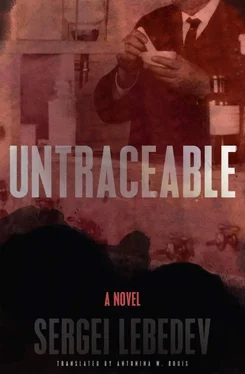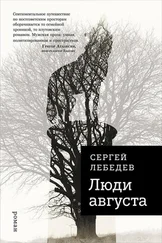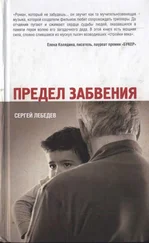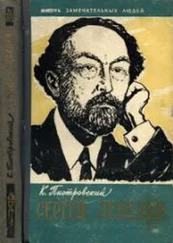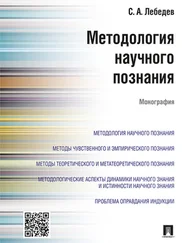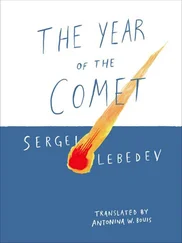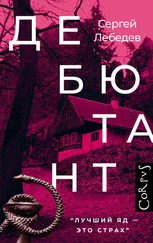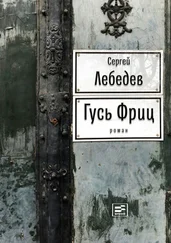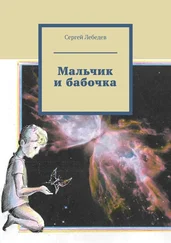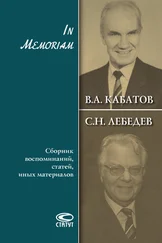Сергей Лебедев - Untraceable
Здесь есть возможность читать онлайн «Сергей Лебедев - Untraceable» весь текст электронной книги совершенно бесплатно (целиком полную версию без сокращений). В некоторых случаях можно слушать аудио, скачать через торрент в формате fb2 и присутствует краткое содержание. Город: New York, Год выпуска: 2021, ISBN: 2021, Издательство: New Vessel Press, Жанр: Современная проза, на английском языке. Описание произведения, (предисловие) а так же отзывы посетителей доступны на портале библиотеки ЛибКат.
- Название:Untraceable
- Автор:
- Издательство:New Vessel Press
- Жанр:
- Год:2021
- Город:New York
- ISBN:978-1-939931-90-0
- Рейтинг книги:3 / 5. Голосов: 1
-
Избранное:Добавить в избранное
- Отзывы:
-
Ваша оценка:
- 60
- 1
- 2
- 3
- 4
- 5
Untraceable: краткое содержание, описание и аннотация
Предлагаем к чтению аннотацию, описание, краткое содержание или предисловие (зависит от того, что написал сам автор книги «Untraceable»). Если вы не нашли необходимую информацию о книге — напишите в комментариях, мы постараемся отыскать её.
Untraceable — читать онлайн бесплатно полную книгу (весь текст) целиком
Ниже представлен текст книги, разбитый по страницам. Система сохранения места последней прочитанной страницы, позволяет с удобством читать онлайн бесплатно книгу «Untraceable», без необходимости каждый раз заново искать на чём Вы остановились. Поставьте закладку, и сможете в любой момент перейти на страницу, на которой закончили чтение.
Интервал:
Закладка:
While gazing at that angel with the special stubbornness of the last shard that does not wish to vanish, steadfastly witnessing the existence of the whole, Kalitin realized that death by its very nature is a dirty thing, and that was not a metaphor. Death always left clues, the multifaceted natural traces that the wise investigator will understand; that is how the world is made, those are its laws.
To bypass, trick those laws, to make death come unseen, penetrating every cover and leaving no trace is the highest power, the ability to directly rule existence.
At that moment Kalitin—who was still young—vacillated.
He understood that the appearance of death, its eternal fate to leave traces, be known, is a natural good, the red signal thread sewn and woven into the fabric of the world. The original law of retribution is encoded and realized in matter. That means the possibility of executing it. The possibility of the existence of the concepts of crime, guilt, revenge, retribution, repentance. Morality per se.
Kalitin hesitated but he was not frightened. He had touched a certain border—the sensation was clear, real. He wanted to step beyond it.
When Kalitin created Neophyte, he saw that it was impossible to bypass the protective mechanism. The law was more complicated than he thought.
Neophyte was weak because of its strength. It left no trace and was lethal, but too unstable as a chemical; the absolute of two qualities to the detriment of all others. Too lethal and therefore not viable.
Neophyte could not be directed, untraceable but dependent on the container. The experts had immediate questions on the tactics of use: How to deploy a substance that kills the killer as well as the victim? They came up with the lame scheme of leaving the target alone with the Neophyte and then removing the vessel, the container; that’s how they killed the banker. The scheme worked, but it removed Neophyte’s main advantage: secrecy.
Back then, at the start of the journey, before Neophyte was formulated as a clear concept, Kalitin was filled with hope.
He became a fan of death. He studied how people died, how that took place chemically and physiologically. He listened to talks by invited specialists, doctors who thought they were entrusting their knowledge to a chemist working on a secret medicine for the Central Committee. At the City morgue he learned from the forensic experts. He read histories of epidemics and researched the death of all living things: plants, mushrooms, insects, plankton, ecosystems.
The first, the simplest, path of experiments he chose led to the creation of a twin substance.
He had long thought that all substances with their various fighting temperaments, duration of action, vulnerabilities, and strong points had twins in the human world. Among people you can call yourself something else, random, unassociated—and so Kalitin created dark twins for substances for civilian use, achieved identical traces that no one could interpret as evidence of murder.
But that was still only a partial, imperfect solution. The trace remained, and in unfortunate circumstances could raise suspicions.
Once Kalitin went night fishing with the chief of security, Zakharyevsky’s old friend. Called back into the acting reserves, the general respected and nurtured Kalitin in his rough way. But his peasant habits had to be indulged from time to time, for instance, carp fishing. The security chief was of interest to Kalitin, too. Uneducated, hopelessly behind the times, he was a fossil from a bygone era, from the sins, filth, and blood that Kalitin wanted to avoid. The simple and meaningless death by bullet reigned there, indiscriminately taking millions of souls. Kalitin was creating a different death—rational, focused; its morality and justification lay in its singularity. But that was why the general interested Kalitin, he reeked of wild blood; against his background, Kalitin’s inner principles stood in stark relief. Besides which, there was a profound and unobvious similarity to their work, which preordained and blessed their alliance, the scientist and the KGB officer. The security chief was a professional whose ethics were expediency; he knew how to open people up and take the shortest path to truth. That’s how Kalitin acted in science.
They fished by the light of a kerosene lantern that cast long shadows on the sand. Nothing was biting. The security chief sucked on his stinking Belomor cigarette, stared at length, thoughtless, at the fishing pole’s bell, sipped at his flask of alcohol infusion of birch fungus, real turpentine—Kalitin tried it once and almost burned his throat. They had brought three newbies to the Island, recent graduates of the special school, as he had once been. Kalitin was looking for an opportunity to ask informally about one he was planning to take on as a lab assistant.
“I wouldn’t,” the old man said in a friendly tone, instantly understanding why Kalitin was interested. “He’s a fool. Talks too much. If he keeps blabbing we’ll take away his access.”
“What does he blab about?” Kalitin asked neutrally.
“Ghosts,” the old man answered slowly. “Those, damn it, specters. Seen them in the cellar.”
“That’s nonsense,” Kalitin exclaimed sincerely.
“Nonsense, but not nonsense,” he said in a lecturing tone. “We’re in a special place. With history. Events took place here in the olden days. Shouldn’t gab in that direction.”
Kalitin felt the old man was talking about something personal, long past. He knew some details of his biography. Zakharyevsky had enlightened him, explaining how to deal with the general.
Kalitin wondered more than once as he thought about the old man: Why didn’t they just round people up, shoot and bury them? Why did they have investigations, write documents, observe the formalities, if they knew it was all a lie? Why all those procedures? He understood now, looking at the old man: for the sake of the executioners. The procedures served as guardrails, to keep them from going mad and becoming insubordinate.
The old man had fallen silent. Kalitin felt that the topic of ghosts had upset him, the idea that death was reversible, that witnesses could arise out of nowhere. He did not believe in ghosts. But it was pleasant observing the superstitious, childish fears of the all-powerful chief of security.
The bell jingled. Deep in the water the carp had taken the bait and pulled it. The old man tugged, then cursed in disappointment. “Gone, the bastard.”
Suddenly in the cupola of light from the lantern white flakes swirled like a snow shower. The wind had carried August mayflies from the expanses of the river, wandering creatures of the night that would not live till dawn.
The mayflies threw themselves at the heated glass, striving for the flame, turning to charcoal. The lamp was like a magical vessel calling them out of the darkness.
The mayflies covered the sand, the tideline, like fallen constellations. Kalitin felt piercing delight. He now knew what his Neophyte should be: short-lived, vanishing in the shadows of the world, capable before disintegrating of performing just one wish: death.
Mayflies. Glorious mayflies. The rusty light of the kerosene flame. The living white blizzard at the end of summer, the dance of departure. A foretaste of blizzards to come. The swoon of winter’s white sleep.
Kalitin fell asleep, feeling the tremor of light-winged shadows under his shut eyelids.
CHAPTER 17
They started out later than planned. When the manager at the rental place typed in the information on Shershnev-Ivanov’s driver’s license, the computer crashed. He reloaded and tried again—another crash.
The manager apologized; Shershnev thought, is this a trap? The license had been issued properly and added to the database.
Читать дальшеИнтервал:
Закладка:
Похожие книги на «Untraceable»
Представляем Вашему вниманию похожие книги на «Untraceable» списком для выбора. Мы отобрали схожую по названию и смыслу литературу в надежде предоставить читателям больше вариантов отыскать новые, интересные, ещё непрочитанные произведения.
Обсуждение, отзывы о книге «Untraceable» и просто собственные мнения читателей. Оставьте ваши комментарии, напишите, что Вы думаете о произведении, его смысле или главных героях. Укажите что конкретно понравилось, а что нет, и почему Вы так считаете.
